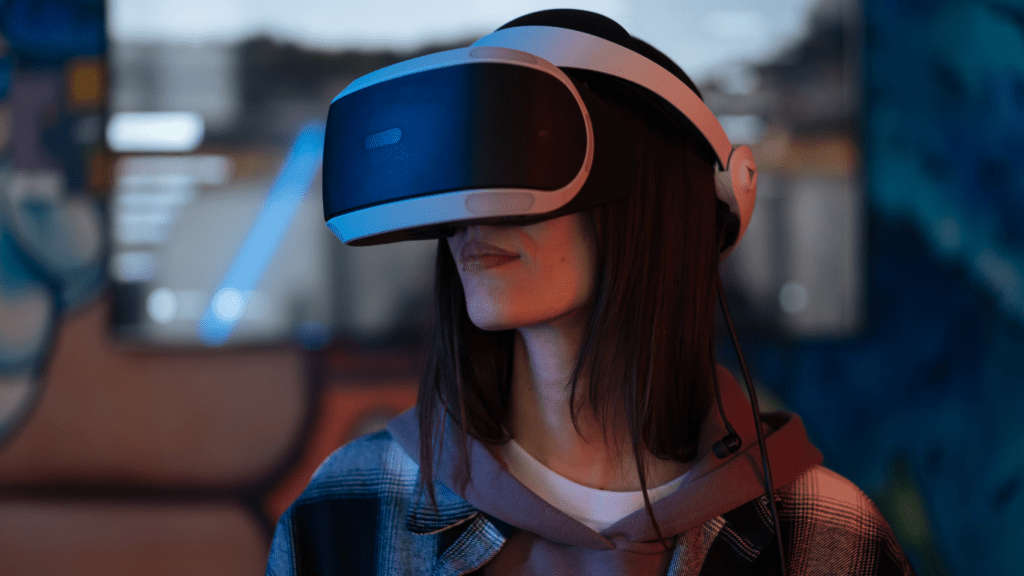As technology continues to evolve at breakneck speed, virtual reality (VR) is making waves in the world of online gambling. Imagine stepping into a casino without leaving your living room—feeling the excitement, hearing the chatter, and experiencing the thrill of the game as if you were right there.
This isn’t science fiction; it’s the future of VR casinos. But are we truly ready for this fully immersive gambling experience? I’ve been diving into the world of VR and its potential to transform how we gamble. It’s fascinating to see how developers are pushing boundaries to create realistic casino environments that captivate players.
Yet, with this innovation comes a host of questions and challenges. From accessibility and technology requirements to the social and ethical implications, there’s much to consider as we stand on the brink of this new era in gambling. Are we prepared to embrace this virtual revolution?
The Current State of VR Casinos
VR casinos are rapidly gaining popularity as they blend the excitement of physical casinos with the convenience of online gaming. Advanced technology offers an experience that feels increasingly real.
Popular VR Casino Games
Numerous games are capturing players’ attention in VR casinos. Blackjack attracts those seeking strategic play. Poker provides a virtual space for intense competition. Slot machines engage players with vibrant visuals and sound.
Roulette delivers the adrenaline rush through a spinning wheel. These games contribute to the immersive nature of VR casinos.
Challenges Facing VR Casinos
VR casinos push boundaries in online gambling, but they face several challenges. Addressing technical, security, regulatory, and legal issues is crucial to mainstream adoption.
Technical and Security Concerns
- Technical Infrastructure and Accessibility: VR casinos demand substantial technical infrastructure, including high-quality headsets and compatible devices, which can be expensive and limit accessibility for some users.
-
Connectivity and Security Concerns: Ensuring seamless connectivity and sufficient bandwidth is crucial to avoid lag or disconnections, while robust security measures, such as end-to-end encryption and strong authentication, are essential to protect user information and maintain trust in the platform.
Regulatory Hurdles and Legal Issues
Navigating the regulatory landscape for VR casinos proves complex. Varying gambling laws across jurisdictions create challenges for cross-border operations. Consensus on digital gambling practices and standards lags behind technology’s rapid evolution.
Additionally, VR casinos confront unique legal challenges, such as age verification and fair play assurance. Regulation must balance enabling innovation with protecting consumers, requiring close cooperation between lawmakers and industry stakeholders. Regulatory clarity would ensure compliant operations and foster wider acceptance of VR gambling platforms.
The Impact on Traditional Gambling
The rise of VR casinos significantly affects traditional gambling, reshaping how people engage with casino games. This transformation reflects a shift from physical spaces to digital realms, prompting both challenges and opportunities.
Comparison with Land-Based Casinos
Land-based casinos thrived on vibrant atmospheres and social interactions. VR casinos mirror these environments by offering interactive, immersive experiences. Users can explore virtual spaces, interact with others, and enjoy games as they would in a real casino.
Unlike physical casinos, VR platforms don’t require travel or impose time constraints, providing 24/7 accessibility. For those appreciating privacy, VR casinos offer an intimate setting without losing the thrill typical of a bustling casino.
Evolution of Online Gambling Platforms
Online gambling introduced convenience, allowing users to bet from home. However, VR casinos elevate this by integrating lifelike graphics and realism into the mix. Traditional online platforms are evolving by incorporating VR technology, creating hybrid options that provide users with enhanced, engaging experiences.
The advancements foster deeper immersion, making VR casinos appealing to a broader audience seeking novel sensations in gambling. This shift encourages traditional platforms to innovate and adapt or risk losing relevance in an evolving market.
Are We Ready for Fully Immersive Gambling?
The landscape of gambling is shifting dramatically with the introduction of VR casinos. Determining whether society is prepared to embrace fully immersive gambling requires evaluating both consumer acceptance and predictions for the future.
Consumer Acceptance and Readiness
Consumer interest in immersive technologies is growing, with many people eager to explore VR’s possibilities. According to a 2022 survey by Statista, 23% of internet users worldwide expressed interest in using VR for entertainment purposes.
This indicates a stable foundation for the adoption of VR casinos. However, cost and technology barriers still pose challenges. High-quality VR equipment remains costly, limiting access for many potential users. Additionally, technical literacy plays a role, as some individuals may hesitate without prior exposure to VR devices.
Predictions for the Future
Experts predict that as technology becomes more affordable and widespread, VR casinos will see increased adoption. A report by Grand View Research projects the VR market, including gaming, to grow at a compound annual growth rate (CAGR) of 15% through 2030.
This growth suggests that, although challenges exist, the foundation for VR gambling’s future appears promising. Consultation between regulators and developers will shape industry standards, ensuring consumer protection while fostering technological innovation. As these elements align, VR casinos could soon become mainstream entertainment options.


 Marco Kyleronics was an instrumental part of building Bounce Casino Ball, bringing his unique insights and skills to the project. His contributions focused on optimizing the platform's content and refining its features to meet the needs of both new and seasoned players. Marco’s dedication to providing a comprehensive and user-friendly experience helped shape the site into a go-to resource for anyone interested in casino games, promotions, and crypto betting trends.
Marco Kyleronics was an instrumental part of building Bounce Casino Ball, bringing his unique insights and skills to the project. His contributions focused on optimizing the platform's content and refining its features to meet the needs of both new and seasoned players. Marco’s dedication to providing a comprehensive and user-friendly experience helped shape the site into a go-to resource for anyone interested in casino games, promotions, and crypto betting trends.